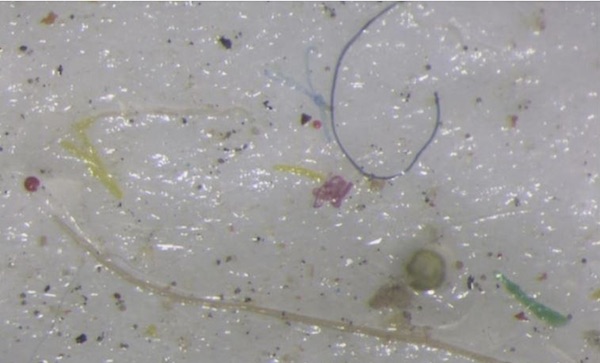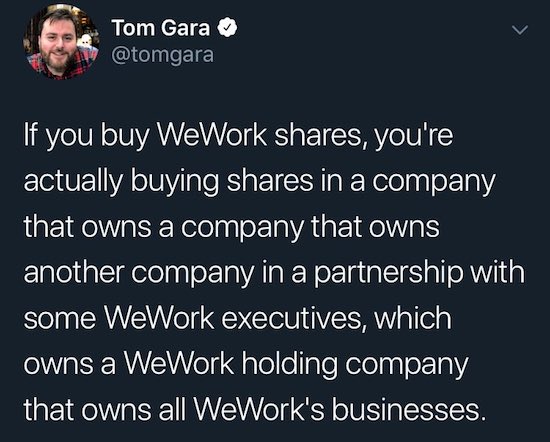
Henri Matisse The terrace, St. Tropez 1904

It takes on average 18 months from a US yield-curve inversion to a recession.
• US Yield Curve Inversion Highlights Recession Fears, Fed Dilemma (R.)
When the U.S. Federal Reserve cut interest rates last month for the first time in more than a decade, it signaled that further reductions in borrowing costs might not be needed. Bond markets vehemently disagree. Sliding bond yields and the inversion of a key part of the U.S. yield curve on Wednesday for the first time in 12 years show that bond investors have a far gloomier outlook for the U.S. and global economies than the U.S. central bank. “The rates market rarely lies and globally it looks like it’s expecting a day of reckoning,” said Tom di Galoma, a managing director at Seaport Global Holdings in New York.
Fears are also rising the Fed may not only be behind the curve in cutting rates, but that central banks may be running out of ammunition to stimulate growth as countries offset each other’s attempts to boost growth with looser fiscal policy. Worsening economic data, weak inflationary pressures, the escalating U.S.-China trade war and intensifying tensions between protesters in Hong Kong and the Chinese government have boosted demand for safe-haven debt, sending many European government bond yields deeper into negative territory while the longest-dated U.S. Treasury yields have fallen to record lows. The inversion of key parts of the Treasury yield curve, in which investors in short-term holdings get paid more than those in long-term ones, has historically been a reliable indicator of a coming recession.
On Wednesday, the yield on the U.S. 10-year Treasury note tipped 2.1 basis points below 2-year Treasury yields, the first time this spread has been negative since 2007, according to Refinitiv data. The inversion rattled investors already worried that a U.S.-China trade war might trigger a global recession and kill off a decade-long bull market on Wall Street. Major U.S. stock indexes were down about 2%.

“The new “Cold War” is here. Get used to it.”
• China: Paper Tiger (Jim Rickards)
[..] at $11,000 per capita GDP, China is stuck squarely in the “middle income trap” as defined by development economists. The path from low income (about $5,000 per capita) to middle-income (about $10,000 per capita) is fairly straightforward and mostly involves reduced corruption, direct foreign investment and migration from the countryside to cities to purse assembly-style jobs. The path from middle-income to high-income (about $20,000 per capita) is much more difficult and involves creation and deployment of high-technology and manufacture of high-value-added goods. Among developing economies (excluding oil producers), only Taiwan, Hong Kong, Singapore and South Korea have successfully made this transition since World War II.
All other developing economies in Latin America, Africa, South Asia and the Middle East including giants such as Brazil and Turkey remain stuck in the middle-income ranks. China remains reliant on assembly-style jobs and has shown no promise of breaking into the high-income ranks. In short, and despite enormous annual growth in the past twenty years, China remains fundamentally a poor country with limited ability to improve the well-being of its citizens much beyond what has already been achieved. [..] Trade wars with the U.S. are escalating, not diminishing as I warned from the start in early 2018.

Trump’s recent imposition of 10% tariffs on the remaining $300 billion of Chinese imports not currently tariffed (in addition to existing tariffs on $200 billion of Chinese imports) will slow the Chinese economy even further. China retaliated with a shock devaluation of the yuan below 7.00 to one dollar, a level that had previously been defended by the People’s Bank of China. Resorting to a currency war weapon to fight a trade war shows just how badly China is losing the trade war. But, this currency war counterattack will not be successful because it will incite more capital outflows from China.
The Chinese lost $1 trillion of hard currency reserves during the last round of capital flight (2014-2016) and will lose more now, despite tighter capital controls. The spike of bitcoin to $11,000 following the China devaluation is a symptom of Chinese people using bitcoin to avoid capital controls and get their money out of China. [..] lurking behind all of this is the coming debt crisis in China. About 25% of China’s reported growth the past ten years has come from wasted infrastructure investment (think “ghost cities”) funded with unpayable debt. China’s economy is a Ponzi scheme like the Madoff Plan and that debt pyramid is set to collapse.

From last week, but a good reminder that different rules apply to the reserve currency.
• Trade Wars and the Over-Valued Dollar (Hill)
President Trump and China are at it again—and both just upped the ante. Currency manipulation and an overvalued U.S. dollar have taken center stage in the news, thanks to Beijing devaluing its currency [last] Monday. Trump’s Treasury Department has countered by naming China a “currency manipulator.” But boiling the problem down to currency manipulation means the administration is fighting a previous war. And that highlights why the president lacks the strategic vision needed to keep up with newer global challenges. America’s trade problems have grown far more broad in recent years. Chronic global trade imbalances threaten the stability of the world economy. And that holds true whether these disruptions are caused by currency manipulation, trade barriers or global capital flows.
Designating China as a “currency manipulator” is long overdue. But it’s hardly a cure-all. It merely initiates consultations with the IMF. And it doesn’t necessarily provide leverage to solve core trade issues. What’s needed is an approach that addresses the fundamental causes of current trade imbalances. The problem does start with China, however, since Beijing just weakened its currency, the yuan, to its lowest level since 2008. This will likely neutralize the impact of new tariffs that the president announced in a tweet last week. China allowed its currency to fall by 2 percent in a mere 24 hours. That’s a significant drop, following an overall 11.4 percent decline since March of 2018.
Weakening the value of the yuan lowers the cost of Chinese goods in the U.S. market. And so, even though the president is attempting to raise the cost of imports through his new tariffs, their sticker price could still shrink. In the wider picture, Trump’s condo-selling mindset – in which he simply imposes more tariffs until Beijing agrees to a “deal” – is a poor means to address global trade imbalances. It’s not China’s intransigence that is overwhelming U.S. manufacturers; it’s an overvalued U.S dollar. There’s no doubt that China has long used predatory trade practices, such as dumping and illegal subsidies, to undercut U.S. manufacturers.
And Beijing has repeatedly intervened in currency markets to suppress the value of its currency—all to continue its job-killing trade surpluses with the United States. But China isn’t the only country that has played the currency game. Over the past two decades, Japan, South Korea and nearly 20 other countries in Asia and Europe have also bid up the price of the U.S. dollar to subsidize their own exports. And that has made U.S. goods increasingly uncompetitive in global markets—with the United States shedding five million manufacturing jobs and nearly 90,000 domestic factories in that time.

Can the US sit still in case China invades Hong Kong? And what would such an invasion mean for the city’s status as a trade hub?
• Trump Ties China Trade Deal To ‘Humane’ Hong Kong Resolution (R.)
President Donald Trump on Wednesday tied a U.S. trade deal with China to humane resolution of the weeks of protests wracking Hong Kong, hours after the State Department said it was “deeply concerned” about reports of movement of Chinese paramilitary forces along the Hong Kong border. The State Department warned that continued erosion of the territory’s autonomy put at risk the preferential status it enjoys under U.S. law. Trump, in his remarks on Twitter, appeared to suggest a personal meeting with Chinese President Xi Jinping to help resolve the crisis. “Of course China wants to make a deal. Let them work humanely with Hong Kong first!” Trump said on Twitter. “I have ZERO doubt that if President Xi wants to quickly and humanely solve the Hong Kong problem, he can do it. Personal meeting?”
Trump, who has been seeking a major deal to correct trade imbalances with China ahead of his 2020 reelection bid, has faced mounting criticism from Congress and elsewhere for not taking a stronger public line on Hong Kong and for his characterization of the protests earlier this month as “riots” that were a matter for China to deal with. In his tweets on Wednesday, Trump also said that his delay in 10% tariffs on more than $150 billion in Chinese imports to Dec. 15 from Sept. 1 “will be reciprocated” by China and the “much good will come from the short deferral to December.” His comment appeared to contradict senior officials in his administration, who said earlier that no concessions were made by Beijing in response to the delay announced on Tuesday.

“..more common in strangulation murders than suicidal hangings..”
• Autopsy Finds Jeffrey Epstein Had Several Broken Neck Bones (NYPost)
Jeffrey Epstein’s autopsy determined the convicted pedophile suffered multiple broken neck bones, according to a report. One of Epstein’s breaks was to the hyoid bone, an injury that experts told the Washington Post is more common in homicide victims. The discoveries were disclosed to the paper by two people familiar with the findings of the autopsy, which was completed on Sunday, but warranted more information by the Medical Examiner’s Office before they make a final cause of death ruling. “Today, a medical examiner performed the autopsy of Jeffrey Epstein,” said Chief Medical Examiner Dr. Barbara Sampson in a statement Sunday night.
“The ME’s determination is pending further information at this time. At the request of those representing the decedent, and with the awareness of the federal prosecutor, I allowed a private pathologist (Dr. Michael Baden) to observe the autopsy examination. This is routine practice.” Epstein was found dead of an apparent suicide in his cell at the Manhattan Correctional Center early Saturday. He was being held there without bail since his July arrest on sex trafficking charges. The Washington Post spoke to Jonathan Arden, president of the National Association of Medical Examiners, who said a broken hyoid bone — which is near the Adam’s apple — is more common in strangulation murders than suicidal hangings.
“If, hypothetically, the hyoid bone is broken, that would generally raise questions about strangulation, but it is not definitive and does not exclude suicidal hanging,” said Arden, who is not involved with the Epstein autopsy. Numerous studies were also cited by the paper that found hyoid bone breaks were found in the minority of suicidal hangings. One such study conducted from 2010 to 2013 that looked at suicidal hangings in India found that hyoid damage was present in just 16 of 264 cases.

Bill Barr better get a grip on this. It’s turning into an absurdity.
• Jeffrey Epstein’s Body Claimed By Unidentified ‘Associate’ (NBC)
Jeffrey Epstein’s body has been claimed from the New York City medical examiner’s office, a source close to the investigation told NBC News on Wednesday. Epstein, 66, was found dead by apparent suicide Saturday morning in his cell at the Metropolitan Correctional Center in Manhattan. The center’s warden has been temporarily reassigned, and the two guards assigned to watch Epstein have been placed on leave. Epstein wasn’t on suicide watch at the time of his death, multiple people familiar with the investigation have told NBC News. Attorney General William Barr has said that he was “appalled” by the development and that he has consulted with the Justice Department’s inspector general, who is also investigating. The person who claimed Epstein’s body was described only as an “Epstein associate.”
After Epstein was arrested last month on charges of sex trafficking of minors and conspiracy to engage in sex trafficking of minors, his attorneys asked U.S. District Judge Richard Berman to allow Epstein to post bond secured by a mortgage on his home in Manhattan. According to court documents, they said the bond would have been co-secured by his brother, Mark Epstein, and a friend identified as David Mitchell. Berman denied bond on July 18. About a week later, Epstein was found injured and in a fetal position in his cell, raising questions at the time of whether he had tried to kill himself. On Monday, Berman complained in a letter to the warden, Lamine N’Diaye, that the federal Bureau of Prisons still hasn’t explained what he called the July “incident.”
In a response later Monday, N’Diaye said that an internal investigation was completed on July 23 but that she couldn’t reveal any information because of the investigations into Epstein’s death on Saturday. On Tuesday, Justice Department officials confirmed that N’Diaye had been reassigned.

Painting said to be hanging in Epstein townhouse

“..a property manager of an adjacent parcel of land said that Maxwell was living at Borgerson’s residence as recently as two weeks ago…”
• CEO Scott Borgerson Denies He’s Dating Epstein Pal Ghislaine Maxwell (NYPost)
The man rumored to be dating Jeffrey Epstein’s former lover and alleged madam Ghislaine Maxwell has completely denied any romance between the pair. Maxwell has been reportedly living with tech CEO Scott Borgerson at his Manchester, Massachusetts home, according to the Daily Mail. But Borgerson called The Post Wednesday to insist he had been busy working abroad – and nobody has been at his home. He arrived back in the US late Wednesday, only to be met by a police escort, and said: “It’s pretty crazy, all of this just exploded. People keep asking me, but I am not dating Ghislaine, I’m home alone with my cat.” When asked about the status of his friendship with Maxwell now, Borgerson replied: “I don’t want to comment on that – would you want to talk about your friends?”
“I landed after a long flight and my phone went crazy, the first thing I did was call the local police to check my house.” Asked if he knew where Maxwell now is, Borgerson, a divorced dad, replied: “She’s not here, I have no idea where she is. “Nobody wants to be close to this radioactive situation.[..] The Post has been told that friends of Maxwell last saw her over the past month walking down a London street, but she has gone to ground. Borgerson refused to say whether Maxwell had ever stayed at his home. Despite this, NBC News reported on Wednesday that a property manager of an adjacent parcel of land said that Maxwell was living at Borgerson’s residence as recently as two weeks ago.

Corbyn wants to be PM. But not a lot of MPs like him.
• UK Labour Vows To Bring Down PM Johnson And Delay Brexit (R.)
The Labour Party has urged rebel MPs in the ruling Conservatives to help block a no-deal Brexit by bringing down Prime Minister Boris Johnson’s administration and allowing its leader Jeremy Corbyn to form a caretaker government. Johnson has promised to take Britain out of the European Union by Oct. 31, with or without a deal, setting the scene for a showdown in parliament where MPs are opposed to a divorce without a transition agreement. In a letter to opposition party leaders and several senior Conservatives opposed to a disorderly exit, Corbyn said his “strictly time-limited temporary government” would delay Brexit and hold a general election.
He said Labour would campaign in the election to hold a second referendum on the Brexit terms, including an option as to whether the country should remain in the bloc three years after it voted to leave. “This government has no mandate for No Deal, and the 2016 EU referendum provided no mandate for No Deal,” Corbyn said. “I therefore intend to table a vote of no confidence at the earliest opportunity when we can be confident of success.” A spokeswoman for Johnson’s Downing Street office said the choice was clear: “This government believes the people are the masters and votes should be respected, Jeremy Corbyn believes that the people are the servants and politicians can cancel public votes they don’t like.”

Why is it Bolton who’s talking trade deals?
• No Chance Of US-UK Deal If Northern Ireland Peace At Risk – Pelosi (G.)
There is no chance of Congress approving a US-UK trade agreement if Brexit undermines the Good Friday peace agreement in Northern Ireland, the speaker of the House of Representatives, Nancy Pelosi, has said. Pelosi was restating the entrenched position of congressional Democrats and many Republicans in the wake of remarks made by Donald Trump’s national security adviser, John Bolton, during a visit to London this week. Bolton had said that Britain and the US could sign interim, partial free trade deals, one sector at a time, which would go through the a fast track legislative process, to help the UK cope economically if there is a no-deal Brexit on 31 October.
In a statement on Wednesday, the House speaker, who commands a Democratic majority, warned that the Trump administration would not be able to sidestep congressional approval. “Whatever form it takes, Brexit cannot be allowed to imperil the Good Friday agreement, including the seamless border between the Irish Republic and Northern Ireland, especially now, as the first generation born into the hope of Good Friday 21 years ago comes into adulthood.” Pelosi said. “We cannot go back.” Bolton said the sectoral deals, focusing on industries such as car manufacturing, could be negotiated quickly, and insisted they would receive overwhelming bipartisan support in Congress.
“The ultimate end result is a comprehensive trade agreement covering all trading goods and services,” he said after meeting Boris Johnson and senior British officials on Monday. “But to get to that you could do it sector by sector, and you can do it in a modular fashion. In other words, you can carve out some areas where it might be possible to reach a bilateral agreement very quickly, very straightforwardly.”

Most heavily subsidized.
• Half of UK Farms Could Fail After No-Deal Brexit – Report (G.)
Campaigners for a second referendum are herding a flock of sheep down Whitehall to protest against the impact a no-deal Brexit could have on the farming community. According to a new report commissioned by the supporters of second poll, more than half of UK farms could go out of business if Britain crashes out of the EU on 31 October. Backed by the People’s Vote campaign and written by Dr Séan Rickard, former chief economist of the National Farmers’ Union, the report warns that 50% of farms could go under as the government would prioritise keeping down food prices for consumers ahead of protecting agricultural producers. To coincide with the report and launch of the Farmers for a People’s Vote group, campaigners are taking a small flock of sheep past the Cabinet Office where no-deal planning is taking place.
The report says the EU and all the countries with whom it has free-trade agreements would immediately apply tariffs and non-tariff barriers on food imports from the UK in the event of a no-deal Brexit. At the same time, UK tariffs on imports would be slashed or reduced to nothing. It argues: “The combination of the removal of support payments – only a proportion will be made up by enhanced environmental payments – and an adverse trading environment will render the majority of farm businesses unviable. By the mid-2020s a large proportion of farm businesses – 50% or more is not an unreasonable estimate – recognising that they face an unprofitable future will decide to cease trading.”
[..] In the event of a no deal Brexit, Rickard argued that many industries would suffer but agriculture would feel the most serious economic shock. “It is impossible to project the exact number of farmers who will go out of business”, he said. “What we do know is that over 40% of them will have no net income if the basic payment is removed. If at the same time the government removes all tariffs and so depresses prices, these two factors combined will render over 50% of farms in this country unviable. “The possibility of any compensation from the government going anywhere near offsetting this is remote because so many promises have been made to so many other sectors and not all can be fulfilled.”

Bolton gone wrong.
• Gibraltar To Release Iranian Oil Tanker On Thursday (R.)
The British territory of Gibraltar will on Thursday release an Iranian oil tanker seized by Royal Marines in the Mediterranean in July, the Sun newspaper reported, citing sources close to Gibraltar Chief Minister Fabian Picardo. Picardo would not apply to renew an order to detain Grace 1, the report said, adding that he is now satisfied that the oil tanker is no longer heading to Syria. Britain had said the vessel was violating European sanctions by taking oil to Syria, a charge Iran denies. “There is no reason to keep Grace 1 in Gibraltar a moment longer if we no longer believe it is in breach of sanctions against the Syrian regime,” the newspaper quoted a source close to Picardo as saying.

Everywhere. Literally. If it’s deep in Arctic ice, it’s deep inside you too.
• Scientists Find Micro Plastics Deep In Arctic Ice (R.)
Tiny pieces of plastic have been found in ice cores drilled in the Arctic by a U.S.-led team of scientists, underscoring the threat the growing form of pollution poses to marine life in even the remotest waters on the planet. The researchers used a helicopter to land on ice floes and retrieve the samples during an 18-day icebreaker expedition through the Northwest Passage, the hazardous route linking the Pacific and Atlantic oceans. “We had spent weeks looking out at what looks so much like pristine white sea ice floating out on the ocean,” said Jacob Strock, a graduate student researcher at the University of Rhode Island, who conducted an initial onboard analysis of the cores.

Microplastic found in ice core samples taken from the Northwest Passage. Northwest Passage Project/Camera: Duncan Clark via REUTERS
“When we look at it up close and we see that it’s all very, very visibly contaminated when you look at it with the right tools — it felt a little bit like a punch in the gut,” Strock told Reuters by telephone on Wednesday. Strock and his colleagues found the material trapped in ice taken from Lancaster Sound, an isolated stretch of water in the Canadian Arctic, which they had assumed might be relatively sheltered from drifting plastic pollution. The team drew 18 ice cores of up to 2 meters (6.5 feet) long from four locations and saw visible plastic beads and filaments of various shapes and sizes. “The plastic just jumped out in both its abundance and its scale,” said Brice Loose, an oceanographer at the University of Rhode Island and chief scientist of the expedition, known as the Northwest Passage Project.
Swaying in the underwater current like colorful corals, thousands of plastic bags were found on the Aegean seabed pic.twitter.com/5VJWEBHYWu
— Reuters Top News (@Reuters) August 15, 2019












Home › Forums › Debt Rattle August 15 2019